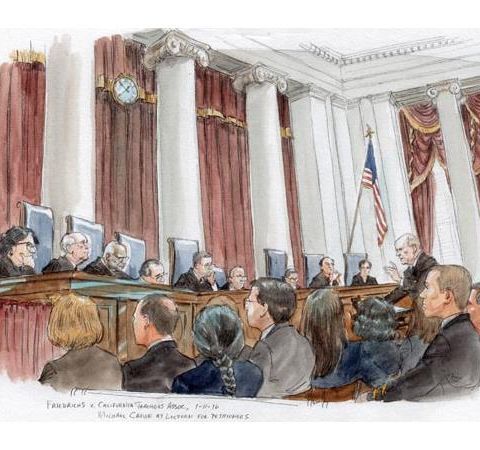Friedrichs v. California Teachers Association

Jan 12, 2016 ·
36m 9s
The premise has two parts: first, everything a union representing government workers does in bargaining over workers’ benefits is, solely because it is a union making the demands, an action...
show more
The premise has two parts: first, everything a union representing government workers does in bargaining over workers’ benefits is, solely because it is a union making the demands, an action driven by ideology and politics; and, second, because of the political nature of the union, every non-union worker represented by that union objects to subsidizing anything it demands. Would there have been no value in questioning the breadth of either premise? Both went unexamined.Kennedy otherwise appeared to be lining up with the developing consensus against the Abood precedent. He emphasized his worry about suppressing the views of individual workers who had opted not to join unions or to support union causes. At one point, in fact, Kennedy interpreted the operation of the “agency fee” as a mechanism to “silence” the non-union members as a group.Lyle Denniston Argument analysis: The question not asked LATimes
The court’s five Republican appointees strongly suggested they believe it is unconstitutional to force an objecting teacher from Orange County and millions like her to pay for union activities they do not support. Justice Anthony M. Kennedy described the mandatory fees as “coerced speech” that violates the 1st Amendment.
show less
The court’s five Republican appointees strongly suggested they believe it is unconstitutional to force an objecting teacher from Orange County and millions like her to pay for union activities they do not support. Justice Anthony M. Kennedy described the mandatory fees as “coerced speech” that violates the 1st Amendment.
Information
| Author | bostonred |
| Website | - |
| Tags |
Copyright 2024 - Spreaker Inc. an iHeartMedia Company
